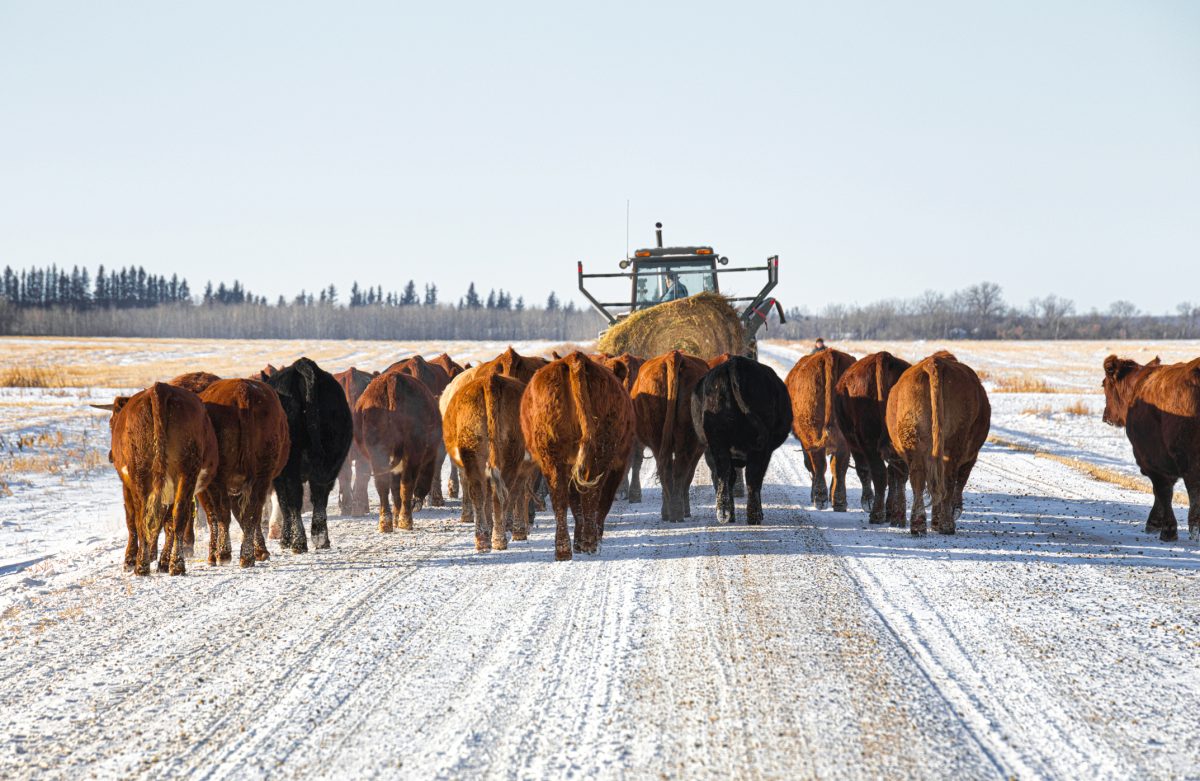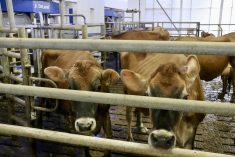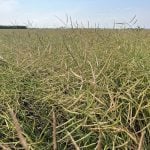Reuters — Canada’s tightly managed dairy sector limits domestic opportunities for Saputo, the country’s largest dairy, forcing it to focus on growth elsewhere, the company’s chief executive said Thursday.
CEO Lino Saputo Jr. emphasized in an interview that the company is not lobbying Ottawa to either dismantle or preserve Canada’s supply management system for dairy, which restricts how much milk farmers can produce and curbs imports. But, he said, a liberalized system could allow Saputo to grow at home.
“If things would open up in Canada, we’re very well-placed to take advantage of whatever opportunities that might be there,” Saputo said. “If a dairy farmer would be able to be cost-effective in Canada, and be able to have a huge pool of milk for us, then, yes, it would make sense to increase our presence in the Canadian platform.”
Read Also

U.S. livestock: Cattle, hogs rally
Chicago Mercantile Exchange cattle and hog futures rallied on Tuesday. Most-active April live cattle gained 2.900 cents to close at…
If Canadian farmers cannot produce milk as competitively in an open market as U.S. farmers can, then Saputo’s investment will follow the milk, he said.
The Montreal-based company has already expanded through acquisition in the U.S., Argentina and Australia. Its brands include Dairyland milk and Armstrong cheese.
It is likely to make one acquisition in the $500 million to $2 billion range this year, Saputo said. The U.S. and Australia are likely locations, but the company is also eyeing new markets such as Brazil and New Zealand.
It is involved in acquisition talks with three to five target companies, he said.
Canada is under pressure from the U.S. and other countries negotiating the Trans-Pacific Partnership trade pact to liberalize its supply-management system.
“In free trade, the strong will survive. I would not be scared of opening up the market,” Saputo said.
Dairy consumption is stagnant or declining in Canada, and Saputo said part of the reason is that supply management makes dairy products costly.
Saputo reported higher quarterly earnings and revenue for its third quarter, ended on Dec. 31, on Thursday. Net income rose to $154.6 million, or 38 cents a share, from $144.1 million, or 37 cents a share, a year earlier.
Analysts, on average, had expected a profit of 41 cents a share, according to Thomson Reuters I/B/E/S.
Revenue climbed 20 per cent to $2.8 billion, above forecasts of $2.66 billion.
— Rod Nickel is a Reuters correspondent based in Winnipeg.















